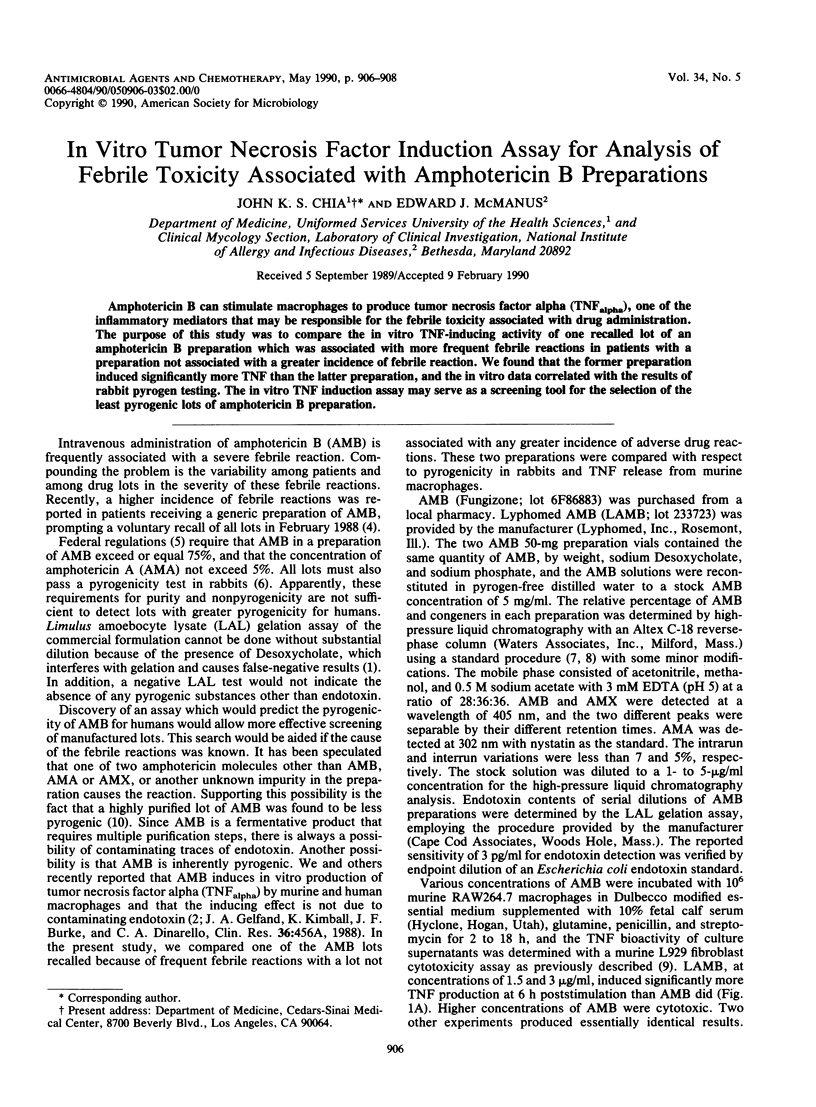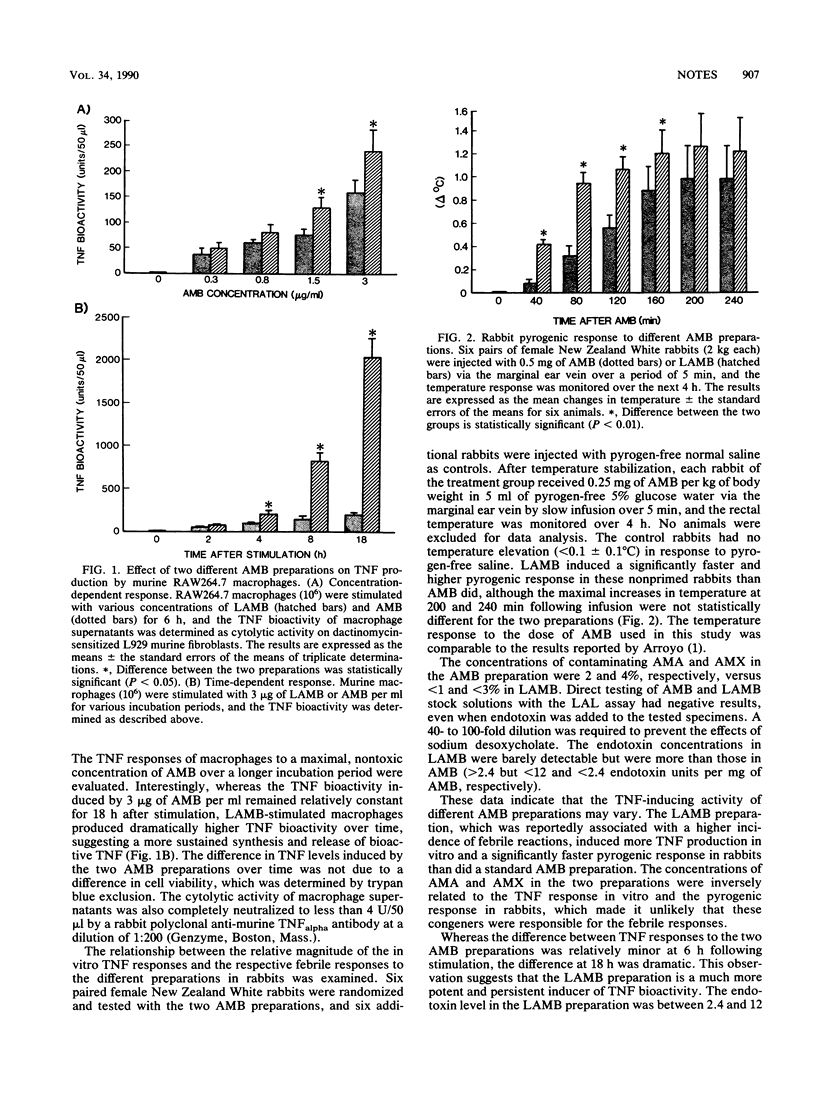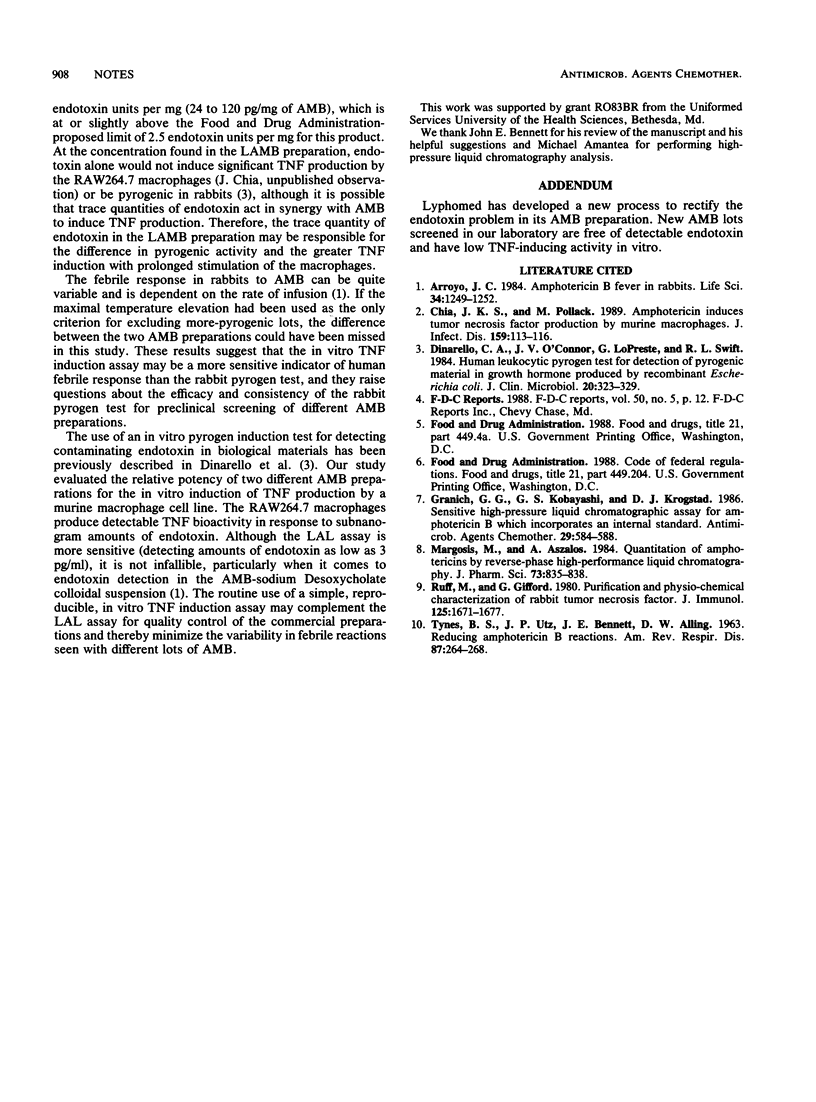Abstract
Amphotericin B can stimulate macrophages to produce tumor necrosis factor alpha (TNF alpha), one of the inflammatory mediators that may be responsible for the febrile toxicity associated with drug administration. The purpose of this study was to compare the in vitro TNF-inducing activity of one recalled lot of an amphotericin B preparation which was associated with more frequent febrile reactions in patients with a preparation not associated with a greater incidence of febrile reaction. We found that the former preparation induced significantly more TNF than the latter preparation, and the in vitro data correlated with the results of rabbit pyrogen testing. The in vitro TNF induction assay may serve as a screening tool for the selection of the least pyrogenic lots of amphotericin B preparation.
Full text
PDF


Selected References
These references are in PubMed. This may not be the complete list of references from this article.
- Arroyo J. C. Amphotericin B fever in rabbits. Life Sci. 1984 Mar 26;34(13):1249–1252. doi: 10.1016/0024-3205(84)90547-2. [DOI] [PubMed] [Google Scholar]
- Chia J. K., Pollack M. Amphotericin B induces tumor necrosis factor production by murine macrophages. J Infect Dis. 1989 Jan;159(1):113–116. doi: 10.1093/infdis/159.1.113. [DOI] [PubMed] [Google Scholar]
- Dinarello C. A., O'Connor J. V., LoPreste G., Swift R. L. Human leukocytic pyrogen test for detection of pyrogenic material in growth hormone produced by recombinant Escherichia coli. J Clin Microbiol. 1984 Sep;20(3):323–329. doi: 10.1128/jcm.20.3.323-329.1984. [DOI] [PMC free article] [PubMed] [Google Scholar]
- Granich G. G., Kobayashi G. S., Krogstad D. J. Sensitive high-pressure liquid chromatographic assay for amphotericin B which incorporates an internal standard. Antimicrob Agents Chemother. 1986 Apr;29(4):584–588. doi: 10.1128/aac.29.4.584. [DOI] [PMC free article] [PubMed] [Google Scholar]
- Margosis M., Aszalos A. Quantitation of amphotericins by reverse-phase high-performance liquid chromatography. J Pharm Sci. 1984 Jun;73(6):835–838. doi: 10.1002/jps.2600730635. [DOI] [PubMed] [Google Scholar]
- Ruff M. R., Gifford G. E. Purification and physico-chemical characterization of rabbit tumor necrosis factor. J Immunol. 1980 Oct;125(4):1671–1677. [PubMed] [Google Scholar]
- TYNES B. S., UTZ J. P., BENNETT J. E., ALLING D. W. Reducing amphotericin B reactions. A double-blind study. Am Rev Respir Dis. 1963 Feb;87:264–268. doi: 10.1164/arrd.1963.87.2.264. [DOI] [PubMed] [Google Scholar]


